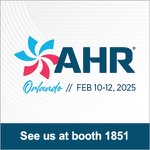When members of Belfast Ecovillage broke ground on their 36-unit community in 2011, they had a vision of creating a community of homes that use 90% less energy to heat and cool than the average code-built home. Although the homes are located in Midcoast Maine, they are heated primarily by the sun and heat from occupants and appliances.
Now that construction is complete, many of the homes have solar systems that produce all or a majority of their own energy, with a modest solar system. This level of energy efficiency is achieved with a solar orientation, airtight construction, generous amounts of insulation, and a Zehnder heat recovery ventilator.
While most traditional homes are oriented to face the road, Belfast Ecovillage homes are oriented to take advantage of solar gains, thus sunlight, not fossil fuels largely heat the homes. Daylight streams in through large triple-pane southern windows, filling the homes with natural light.
Belfast Ecovillage homes are nearly airtight and contain an air barrier, meaning that virtually no uncontrolled outside air enters the home. A blower door test was used by the builder to measure how much air infiltrates from the outside when applying great pressure.
The airtight construction enables a builder to control where air enters a home, typically through a heating, air conditioning, or ventilation system. Instead of air leaking up through a basement, crawl space, garage, attic, or through potentially moldy walls –the air intake for Belfast Ecovillage homes is engineered for optimum indoor air quality.
All 36 units have Zehnder heat recovery ventilation (HRV) systems to promote indoor air quality and energy efficiency. A constant stream of fresh, filtered air is supplied to the living spaces thus pollen, dust, and mold spores are removed when a finer filter is used. Stale air is extracted from the bathrooms and kitchen, removing moisture from showers, fumes from cooking, and odors from the home.
During the summer, if the home is cooler than the outside, the coolness is transferred to the intake air. In the winter, heat is transferred from the exhaust air to the intake air. Unlike most exhaust fans, precious heated air is not vented to the outside.
Zehnder heat recovery ventilation systems are up to 95% efficient in recycling heat. These systems enable a very high efficiency and air quality that would otherwise not be possible together.
“I think the HRV is what revolutionized these houses,” says Brian Hughes, a carpenter for GO Logic and a member of Belfast Ecovillage. “People have been building super tight insulated houses since the 50s. The problem was that the air quality wasn’t good and people didn’t try having a super tight building again until they realized that with the heat exchanger, you can use a tiny bit of electricity and have really high air quality.”
